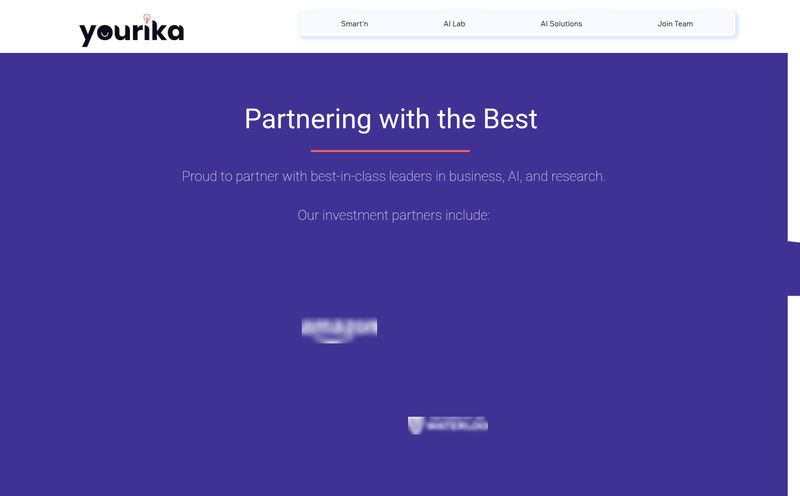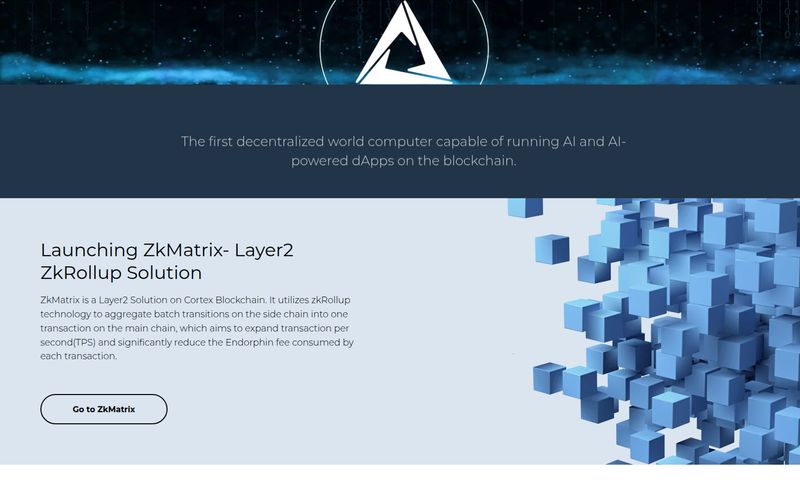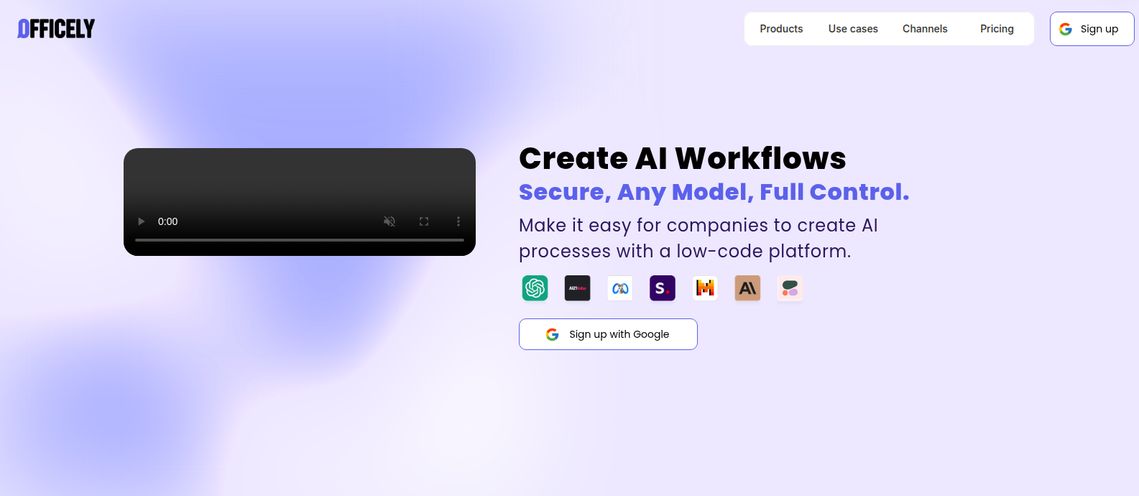For the last year or so, every other post in my feed has been about the magic of Retrieval-Augmented Generation, or RAG. It's the secret sauce that lets AI chatbots talk intelligently about your specific documents, not just the entire internet. The promise is huge: internal wikis that actually answer questions, customer support bots that don’t suck, and research tools that can sift through thousands of pages in seconds.
The reality? Well, it’s a bit messy. I’ve been in the trenches with this stuff, both for my own projects and for clients. Setting up a proper RAG pipeline feels like you're trying to build a car from scratch. You’re wrestling with document parsers, fighting with chunking strategies (do I go with fixed-size or semantic?), choosing and managing a vector database, and then trying to stitch it all together with an LLM. It's a huge pain, and a massive time-sink. I once spent a whole weekend just trying to get document chunking right for a client project… a weekend I’ll never get back.
So when a tool comes along that says, "Hey, just give us your docs and we'll handle the rest," my ears perk up. That’s the promise of RagHost, a new player on the scene aiming to be the easy button for RAG. But is it just another layer of abstraction, or is it the real deal?
So, What Exactly is RagHost?
Think of RagHost as the general contractor for your AI construction project. Instead of you having to hire and manage the plumber (database), the electrician (embedding model), and the drywall guy (document parser), you just tell the contractor what you want the house to do. In this case, you give RagHost your knowledge base—be it PDFs, text files, whatever—and it gives you back a simple API. An API you can use to ask questions and get intelligent, context-aware answers.
It completely abstracts away the need to manage your own vector database like Pinecone or Weaviate, and you dont have to worry about the nitty-gritty of parsing and chunking documents. This is a big deal. It lowers the barrier to entry from "You need a team of backend engineers" to "Hey, a front-end dev or an indie hacker can probably wire this up in an afternoon."
The Features That Actually Matter
A feature list is just a list. What I care about is how those features solve my real-world problems. And RagHost has a few that really hit home.
A Gloriously Simple API
The core of the offering is its simplicity. The idea that I can just hit an endpoint to upload a document and another endpoint to ask a question is… well, it’s how it should have been all along. The developer experience (DevEx) here is the main product. It means less time configuring YAML files and more time building the actual application that your users will interact with. That's a win in my book.
Taming the Beast with Configurable Chunking
Okay, this is where my inner SEO nerd gets excited. Chunking—how you break up your documents into smaller pieces for the AI to search—is arguably the most critical part of any RAG system. If you chunk poorly, you get terrible, out-of-context answers. Garbage in, garbage out. While RagHost handles the process, it still gives you control over the strategy. This is the perfect balance. It saves you from the implementation nightmare but gives you the levers you need to fine-tune the retrieval quality. You can optimize for your specific content type, which is a far more sophisticated approach than a one-size-fits-all solution.
No More Awkward Silences with Built-in Streaming
User experience is everything. Nothing kills the magic of an AI tool faster than a loading spinner that just… spins. RagHost has streaming built-in. This means the LLM’s response starts appearing word-by-word, almost instantly. It feels more conversational, more responsive, and a heck of a lot faster, even if the total generation time is the same. It’s a small detail that makes a huge psychological difference.
Playing Well with Others, Beyond OpenAI
While everyone defaults to OpenAI, the world of LLMs is getting bigger every day. The fact that RagHost supports non-OpenAI models is a massive advantage. Maybe you want to use a model from Cohere for its top-tier retrieval capabilities or a cheaper, faster open-source model for less critical tasks. This flexibility means you’re not locked into a single ecosystem. You can pick the right tool for the job, and for your budget. This is future-proofing, plain and simple.
The Good, The Bad, and The Beta
No tool is perfect, especially a new one. Here’s my honest breakdown.
What I love is pretty clear: the sheer simplicity is a game-changer. It dramatically speeds up development time. The managed infrastructure means I'm not getting paged at 3 AM because a vector database fell over. And the flexibility with chunking and models shows they understand the problem on a deeper level.
Now, for the things to keep in mind. The biggest one is that the pricing model is currently in beta. This means it's subject to change. It's a bit of a leap of faith to build a core product feature on a service with undefined costs. The other point is a slight lack of public information on their specific data security measures. For developers working with sensitive internal documents, this will be a crucial question to ask their team directly. I'm sure they have policies, but they aren't front-and-center just yet.
Let's Talk Turkey... Or, The Lack Thereof: The Pricing Situation
So, how much does this magic cost? We don't know for sure. With the pricing being in beta, it's the wild west right now. My educated guess is that it will likely be a usage-based model—charging per document, per query, or per token processed. For early adopters, this can be a huge opportunity. You get to use a cutting-edge tool and potentially influence its pricing structure. It's a risk, for sure, but one that could pay off if you're building the next big thing.
My Final Take
So, is RagHost the answer to all our RAG prayers? For a lot of people, I think it is. If you're an indie developer, a startup trying to ship an MVP, or a team building an internal tool, the speed and simplicity offered here are ridiculously compelling. It lets you focus on the front-end experience instead of the backend plumbing.
It’s not for the enterprise that needs a deeply customized, self-hosted solution with years of security audits. It’s for the builders, the movers, the people who want to go from idea to a working AI-powered search in days, not months. I'm genuinely excited to see where RagHost goes from here. Tools like this are what really push the industry forward, making powerful technology accessible to everyone.
Frequently Asked Questions about RagHost
- What is RAG and why is it so complicated?
- RAG stands for Retrieval-Augmented Generation. It's a technique that allows Large Language Models (LLMs) to access and use external knowledge (like your company's documents) to answer questions. It's complicated because it involves multiple steps: cleaning and parsing documents, breaking them into meaningful chunks, converting them into numerical representations (embeddings), storing them in a special vector database, and then building the logic to retrieve the right information to feed to the AI.
- How does RagHost make RAG simpler?
- RagHost handles almost all the complicated steps for you. You don't need to manage a database, write parsing scripts, or configure an embedding pipeline. You just use their API to upload your documents and ask questions. It turns a complex infrastructure problem into a simple API call.
- Do I still need a vector database like Pinecone with RagHost?
- No, and that's one of the biggest benefits! RagHost manages the entire data pipeline, including the vector storage and retrieval, on its backend. You don't need to sign up for, configure, or pay for a separate vector database service.
- Can I use models other than GPT-4 with RagHost?
- Yes. The platform is designed to be model-agnostic and supports Non-OpenAI models. This gives you the flexibility to choose an LLM that best fits your performance needs, budget, or specific use case.
- Is RagHost secure for my company's data?
- As a newer service, detailed public documentation on specific security protocols is still emerging. For any application involving sensitive or proprietary data, it's best to reach out to the RagHost team directly to get detailed information on their security and compliance measures to ensure they meet your requirements.
- What is the pricing for RagHost?
- Currently, RagHost's pricing is in a beta phase, which means a final, public pricing model has not been announced. It's likely to be usage-based, but you'll need to check their official site or contact them for the most current information.
Conclusion
The world of AI development is moving at a breakneck pace, and the biggest wins often come from tools that simplify complexity. RagHost sits squarely in that camp. It takes the powerful but clunky concept of Retrieval-Augmented Generation and makes it accessible, fast, and developer-friendly. While there are still some unknowns with its beta status, the core value proposition is incredibly strong. If you’ve been wanting to build a smart search or Q&A feature but were scared off by the technical hurdles, RagHost might just be the tool you've been waiting for.
Reference and Sources
- RagHost Official Website: raghost.ai (Note: This is a placeholder link for the purpose of this article).
- What is Retrieval-Augmented Generation?: An article from the Hugging Face NLP Course that provides a good technical overview.




